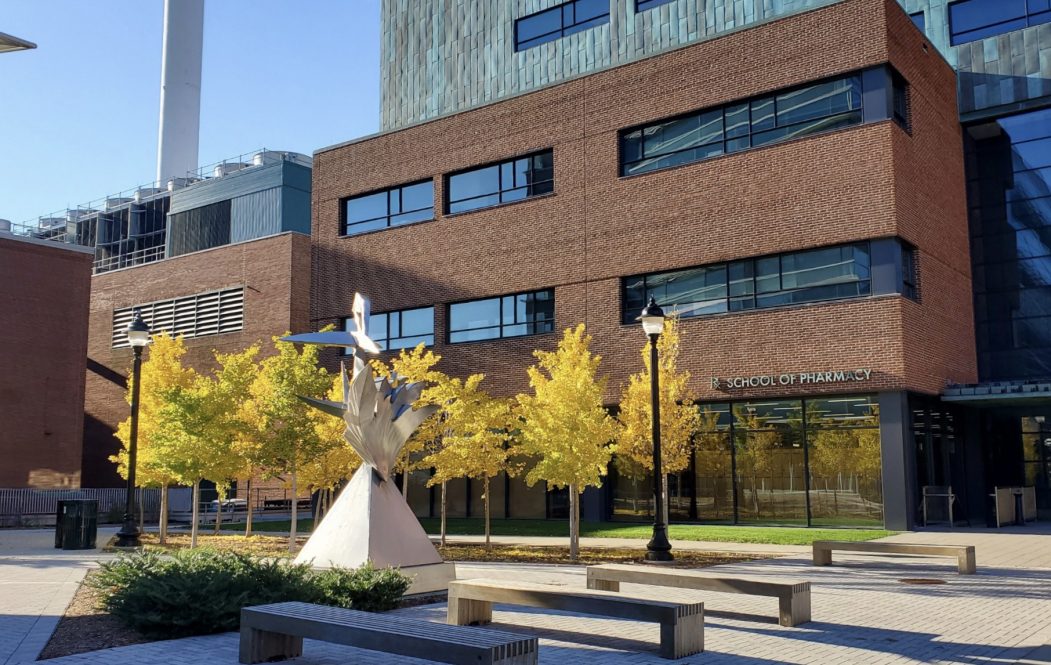The American Foundation for Pharmaceutical Education (AFPE) has awarded UConn School of Pharmacy student Angela “Ange” Su (Pharm.D. ’24) with the prestigious AFPE Gateway to Research Award.

The Gateway to Research Award allows undergraduate and Pharm.D. students to participate in a faculty-mentored research project. The scholarship allows students to gain an understanding of the importance of research by enabling them to apply knowledge to improve their clinical skills.
Su will be working with Marie Smith, Pharm.D., FNAP, Assistant Dean for Practice and Public Policy Partnerships, and the Dr. Henry A. Palmer Endowed Professor in the UConn School of Pharmacy — Department of Pharmacy Practice. They answered our questions below:
Research project: An Interdisciplinary Healthcare Team Perspective on Improving Emergency Department Medication Reconciliation Processes.
Research Goal: To identify emergency department medication reconciliation workflow process and system inefficiencies that may contribute to adverse drug events and preventable hospitalizations, and (2) incorporate interdisciplinary perspectives on improving emergency department medication reconciliation processes to improve patient medication safety.
Through a survey and focus groups, we will collect data to identify potential problem areas in the current medication reconciliation processes within the emergency room at 2 hospitals. The participants in the study are multiple health care professionals and staff involved in the emergency department medication reconciliation process — including nurses, prescribers (i.e. nurse practitioners, physicians, and physician assistants), pharmacists, pharmacy technicians and interns, as well as their managers. We anticipate that our findings will paint a picture of where the biggest problems are in the current medication reconciliation process and offer suggestions for process improvement. Our goal is to identify workflow inefficiencies, improve patient medication safety, and prevent unnecessary medical visits or hospitalizations due to adverse drug events.
Why was this study ultimately selected for this prestigious award?
There are two main aspects of the research study that stood out to the selection committee for the award:
1. the topic of medication reconciliation workflow in emergency departments has not been widely studied, and
2. the study incorporates perspectives from multiple health care professionals, staff, and managers who are responsible for medication reconciliation processes and medication safety.
What is medication reconciliation?
A patient may come into an emergency department with a bagful of medications or have a list of multiple medications that they take at home. Medication reconciliation is a process of ensuring that a patient’s medication list is as up-to-date as possible. This list should include all the medications that the patient is using at home – prescriptions, over-the-counter meds, herbal products, dietary supplements — from multiple prescribers and multiple pharmacies.
Once this comprehensive medication list is developed, there is a process to clarify any discrepancies between the patient’s home medication lists with lists in the patient’s medical, hospital, or pharmacy records. Conducting a medication reconciliation can vary widely at different emergency departments and there are often opportunities for process improvement. This is especially true since emergency department medication reconciliation workflows are urgent and rely on coordinated communications among multiple health care professionals.
By incorporating interdisciplinary perspectives, we can identify areas for workflow and process improvement to avoid adverse drug events and medication errors, as well as unnecessary hospitalizations that are related to such drug therapy problems.
How does this research play into the larger world of pharmacy outside the School?
It is estimated that adverse drug events cause approximately 1.3 million emergency department visits and 350,000 hospitalizations each year. So it is critical that patients in emergency departments have a thorough medication review prior to receiving treatment or being admitted to the hospital. Since emergency rooms are such busy places, we want to look at how we can make sure the workflow for medication reviews is efficient and effective for safe medication use.



